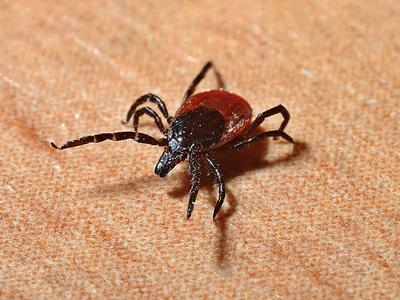Preventative care
Because Good Health Begins With Self Help
There’s a saying that goes ‘prevention is better than cure’, which makes a lot of sense because it's clearly easier to stop something happening in the first place than to repair any damage once something has happened. However, when it comes to your health, this proverb – largely attributed to the Dutch philosopher Desiderius Erasmus in the 1500s – is bang on the money.
The core objective of preventive medicine is to keep people healthy, thereby limiting the impact of disease throughout their lifetime. From eating well to doing gentle exercises, there are a number of ways people can help themselves before medical professionals have to step in.
For this reason, preventative care is the most basic healthcare gift a person can give to their body on a regular basis. In fact, according to a study funded by the Centers for Disease Control and Prevention (CDC), increasing the use of preventative services could actually save more than 100,000 lives a year.
As another saying goes, ‘an apple a day keeps the doctor away’ – and if an apple can manage that, just imagine the benefits to be had from a proper preventative care programme.
What Falls Under Preventative Care?
The list is quite possibly endless, but the most common services that fall under preventative care are:
- Blood pressure screenings
- Type 2 diabetes screenings
- Obesity screenings and dietary guidance
- Ultrasound and thermal imaging screenings
- Pap smear screenings
- Eye tests etc
Screenings and tests can play an especially important role in preventative care as they often detect illnesses in the body that might otherwise go unnoticed for years, such as high blood pressure, which can lead to strokes and heart disease if left untreated.
More than 868,000 Americans die of heart disease or stroke every year – one-third of all deaths in the States – according to the CDC. The British Heart Foundation also states that heart and circulatory diseases cause a quarter of all deaths in the UK each year; that's more than 160,000 deaths, or one death every three minutes.
Unsurprisingly, actively maintaining health and treating illnesses as early as possible are among the most significant goals in modern healthcare. It is somewhat ironic then that one of the greatest challenges facing people’s health today is modern living itself and all the trappings that go with it.
The Toxic Truth of Modern Living
At Neomed we have always believed that the best time to invest in health is when you are well, and one of the most valuable investments you can make is regular detoxification sessions.
Each of us is exposed on average to 200 toxins per week, which is a staggering cocktail of chemicals floating around our bodies, capable of suppressing the immune system, disrupting hormones (thereby increasing infertility rates), ageing cells and increasing the risk of chronic disease.
According to studies, there is also a link between environmental toxicity and conditions on the autism spectrum disorder.
Preventative Care at Neomed
Over the years we have invested in a number of new technologies while continuing to draw on ancient wisdoms to bring our guests the best possible programme of preventative care to suit their individual needs.
One of the most popular and dynamic methods to promote good health is via a carefully customised programme of treatments that promote detoxification and deliver vitamins and nutrients essential for our well-being, such as:
- Various infusions that offer a unique blend of components, as well as vitamins and minerals to nurture your body and help decrease viral, bacterial, parasitic, and viral loads while supporting the body’s elimination organs. Specially created by our partner German pharmacies, Neomed’s infusions offer guests different avenues to enhance their health and optimise their vitality;
- Ozone therapy, which is a safe, non-toxic treatment to modulate the immune system, aid microcirculation and directly destroy pathogens;
- Hyperbaric oxygen chamber therapy (HBOT) that oxygenates body tissue, bringing a range of benefits to support the treatment of a number of illnesses from fibromyalgia to Lyme disease;
- And Pap-Ion Magnetic Inductor (Papimi), which is a high-end device that induces electromagnetic impulses directly into the somatic cell, activating processes of self-healing.
Our resident naturopath, Margit Taubmann, explains: “Everyone has weak points and these can be susceptible to all sorts of factors from environment to stress to genetics. For example, a parent with Type B diabetes, which is a rare form of diabetes associated with auto-immune disorders, might not know that their child has subsequently developed a weakness of the pancreas. This could leave the child open to illness if certain nutritional needs aren’t met or certain medical treatments are given. However, if the child receives a healthy, low-carbohydrate diet and is encouraged to make good lifestyle choices they have every chance of staying healthy.
“We are also learning more and more about the role of epigenetics in illness. Epigenetics covers the way in which genes are expressed and used, rather than the DNA sequence of the genes themselves. From recent studies, there is growing evidence to suggest that environment can be a major factor in how these genes do, or don’t do, their job.
“For this reason, the ultimate aim of preventative care is to discover any weak points in the system so that the right treatments or advice can be given in order to ensure these weak points don’t develop into disease.
“The bottom line is, you have a better chance of staying healthy and living a long, active life if you build strong body systems or work on the weak points in your body. By keeping all your organs working correctly you have a far greater chance of enjoying a fulfilling and active life when you get older.”
For more information about our Preventative programme, please fill in the form below:







